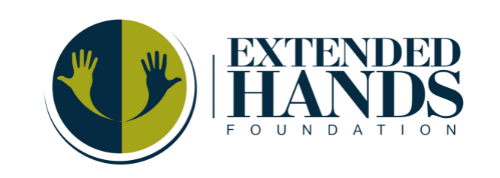
“In an unequal world, women with fistula are the most unequal among the unequal”
….. Prof Margaret Zacharin
[vc_column_text css_animation=”bounceInUp”] The United Nations Population Fund (UNFPA) estimates that about two million women in Sub-Saharan Africa are currently living with Vesico Vaginal Fistula with Nigeria accounting for about 800,000 to 1,000,000 cases. The rate of Vesico Vaginal Fistula in Nigeria is estimated to be about 4 per 1000 deliveries with about 100,000 new cases every year.
At Extended Hands Charity Foundation, we work to prevent and treat obstetric fistula by combining the approach of medical treatment and community awareness creation programs.
To achieve this, Extended Hands Charity Foundation partners with hospitals and health centres to provide obstetrics fistula services to affected women, and support the training of medical personnel to perform fistula repair surgery.
Also, we believe that building community awareness and integrating family planning intervention with fistula and maternal health care is critical to strengthening fistula prevention and treatment in Nigeria.
Accordingly, Extended Hands Charity Foundation has been in the vanguard of mobilizing community gatekeepers and other local influencers to address some of the cultural norms and belief systems that tend to perpetrate fistula cases in Nigerian communities.

“Constantly in pain, incontinent of urine or feces, bearing a heavy burden of sadness in discovering their child stillborn, ashamed of a rank personal offensiveness, abandoned therefore by their husbands, outcasts of society, not employable except in the fields, they live, they exist without friends and without hope” …. RHJ Hamlin and E Catherine Nicholson
Nigeria makes up 3% of the world’s population, yet it accounts for 14% of all maternal deaths. Health facilities are scarce and often undersupplied especially in the rural areas and where health care services do exist, cultural and social practices tend to limit women’s ability to use them. VVF is a major cause of severe morbidity and potential mortality with its consequential social attendants including marital disruption and rejection. The condition remains a significant cause of female urinary incontinence worldwide. Studies attribute the main causes of fistula cases in Nigerian rural communities to include poverty, illiteracy, ignorance and poor obstetric services.
VVF victims suffer both physical and social consequences. Many of them are abandoned by their husbands and ostracized by families and societies because of their repulsive smell and their inability to further engage in sexual activity or bear children. All of these have made many of them destitute as they find it difficult to engage in economic activities with many of them turning to street begging. Studies have shown that most cases of VVF are from the rural areas where there is lack of access to appropriate emergency obstetric care coupled with the strong hold to negative traditional practices. Extended Hands Charity Foundation therefore employs the strategy of including men-targeted programs to enlighten and educate men, especially those living in rural areas on the need to allow their women access to medical care during pregnancy to avoid complications that could cause Vesico Vaginal Fistula.
At Extended Hands Charity Foundation we work towards a more sustainable maternal health through advocacy, direct surgical repairs programs and projects that help create enlightened and empowered women and communities who become active champions for healthy maternal practices. We believe we have the capacity to create a lasting impact in women’s health in Nigeria and we are doing something about it with a focus on developing innovative programs that address Vesico Vaginal Fistula in the rural communities in Nigeria.

Our Goals
Our goal is to end the suffering of girls and women who are left incontinent as a result of an obstetric fistula as well as improve access to quality healthcare for fistula patients.

